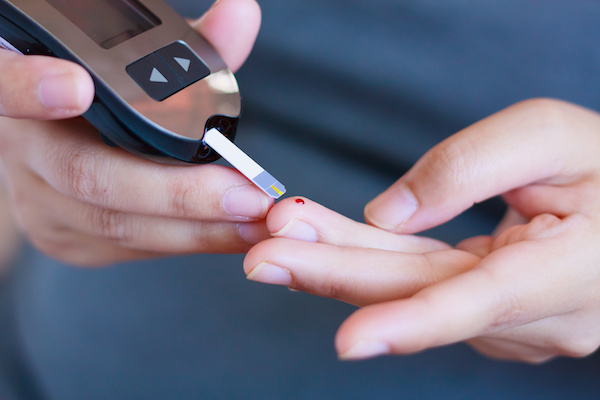Diabetes & Your Kidneys | Tennessee Valley Urology Center

As if all the challenges of having diabetes aren’t enough, the disease itself can create further health issues that can plague people their entire lives. Among those is damage that can lead to kidney disease, with diabetes the leading cause of kidney disease.
The condition is notably common among those with diabetes. In fact, the National Institutes of Health indicates about a quarter of adults with diabetes has kidney disease.
That’s because high blood glucose, a common symptom of diabetes, can damage the small blood vessels throughout the body, including in the kidneys. That can limit the organs’ ability to filter the blood as your body needs them to, which can cause waste to build up in your body.
Timing & Symptoms of Diabetic Nephropathy
Typically, diabetic kidney disease develops after someone has diabetes for a long time, particularly if the condition isn’t well-managed.
Among the earliest symptoms of diabetic kidney disease is the presence of the liver-produced protein albumin in the urine. That’s part of why diabetes patients are directed to have annual blood and urine tests.
The Mayo Clinic provides many symptoms of diabetic nephropathy, most of which may not develop until later stages of progression of the condition.
They include:
- Issues controlling blood pressure
- Protein in the urine
- Swelling in the hands, feet, ankles and/or eyes
- Increased urination
- Reduced need for insulin or diabetes medication
- Confusion or difficulty in concentrating
- Shortness of breath
- Loss of appetite
- Nausea and vomiting
- Persistent itching
- Fatigue
Tips for Maintaining Kidney Health
If you have diabetes and want to slow or prevent related kidney disease, it becomes even more important that you follow your physician’s recommendations for healthy living. Your situation may be different, but generally the National Institute of Diabetes and Digestive and Kidney Diseases recommends:
- Working to achieve your blood glucose (A1C) goals
- Working to lower or maintain healthy blood pressure levels
- If you’re a smoker, stopping
- Avoiding high-salt foods
- Exercising regularly
- Getting to and/or maintaining a healthy weight
- Getting enough sleep, which is typically defined as seven to nine hours per day.
If you have diabetes and notice any of these symptoms, contact your primary care physician or the specialists at Tennessee Valley Urology Center immediately.
